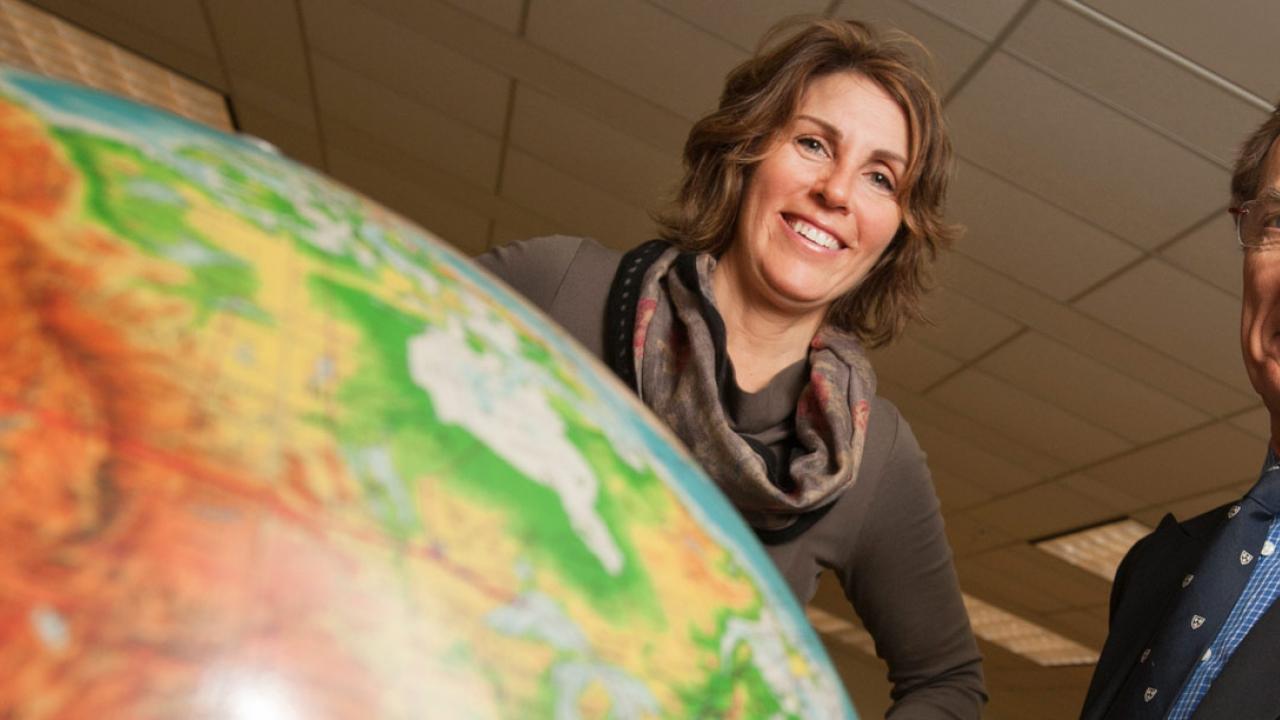As scholars who study global business trends and their impact, Paul A. Griffin and Amy Myers Jaffe are great role models for their students at the UC Davis Graduate School of Management.
The two UC Davis faculty members tackle a range of corporate social responsibility issues across the global stage such as energy and sustainability, use of conflict minerals and greenhouse gas emissions.
Griffin, who is a professor of management, is an international authority in accounting and corporate disclosure.
“My research on accounting reports and corporate disclosure provides some unique insights about managers’ actions and consequences,” he says. “This knowledge is more important than ever as companies strive to meet the global challenges of climate change and sustainability.”
Jaffe, executive director of energy and sustainability for UC Davis, is a global expert on energy policy, geopolitical risk, and energy and sustainability. She holds a joint appointment with the UC Davis Institute of Transportation Studies.
“Increasingly we live in a globalized society where problems of environment, social justice and security do not end at national borders,” she says.
“In my research on sustainability and energy, I see clearly how local efforts like UC Davis' West Village project can contribute to global solutions and how much global solutions are needed for local problems across the world.”
Just recently, they contributed to a study that found investors in U.S. oil and gas companies have not ignored science when considering whether a potential carbon asset bubble exists.
It’s a concern raised in recent media reports. The study found, instead, that investors’ rational expectations for future cash flows are based on all possible scenarios, not just dire predictions in the media about a carbon asset bubble bursting.
Jaffe is attending special energy sessions at the World Economic Forum, Jan. 22 to 25 in Davos-Klosters, Switzerland. On Jan. 24, Jaffe and John Negroponte, former U.S. ambassador to the United Nations and former U.S. ambassador to Iraq, will speak at an additional energy event on “Unconventional Oil and Gas: Reshaping the Geopolitical Map.”
Griffin published a study that predicted that a Securities and Exchange Commission rule requiring companies to disclose their use of “conflict minerals” — those mined in the Republic of Congo and neighboring countries and linked to armed conflict and human rights abuses — would cost shareholders billions of dollars. In another study, he found that share prices went up for companies that reported their greenhouse emissions reduction strategies.
Griffin and Jaffe bring their research and expertise on these important global issues into the classroom and the management school’s community, shaping the way business education at UC Davis is preparing innovative leaders for global impact.
